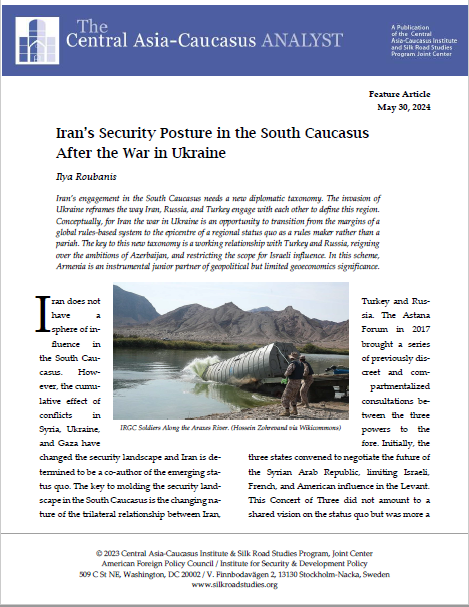Iran’s Security Posture in the South Caucasus After the War in Ukraine
Ilya Roubanis
June 6, 2024
Iran’s engagement in the South Caucasus needs a new diplomatic taxonomy. The invasion of Ukraine reframes the way Iran, Russia, and Turkey engage with each other to define this region. Conceptually, for Iran the war in Ukraine is an opportunity to transition from the margins of a global rules-based system to the epicentre of a regional status quo as a rules maker rather than a pariah. The key to this new taxonomy is a working relationship with Turkey and Russia, reigning over the ambitions of Azerbaijan, and restricting the scope for Israeli influence. In this scheme, Armenia is an instrumental junior partner of geopolitical but limited geoeconomics significance.
Iran's empowerment in Central Asia and the South Caucasus
By Richard Weitz
October 19th, 2015, The CACI Analyst
Although international attention regarding Iran naturally gravitates towards Tehran’s activities in the Persian Gulf and the nuclear realm, Iran is also an active player in the South Caucasus, Central Asia, and Afghanistan. Thanks to its nuclear deal with the great powers, the subsequent relaxation of sanctions, and the growth of regional terrorism and Russian military activism, Iran’s influence in the region is set to grow considerably in coming years, though not necessarily to the benefit of the regional states or their Western partners.




